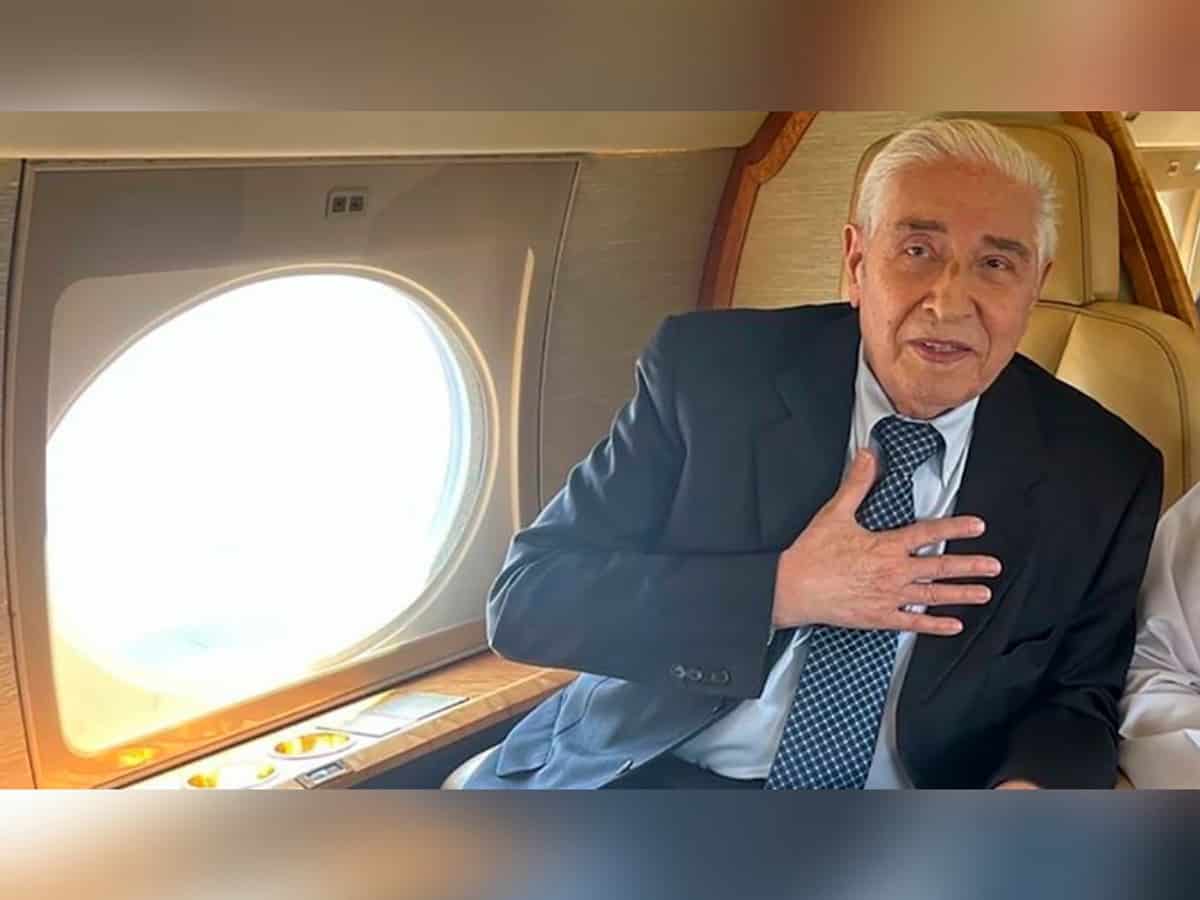
An 85-year-old American citizen of Iranian origin Mohammad Baquer Namazi, who was imprisoned in Iran for over six years was released on Wednesday for urgent medical treatment.
Namazi’s lawyer, Jared Genser, confirmed his arrival and said he had been checked in to Cleveland Clinic in Abu Dhabi.
“It is impossible to overstate the extraordinary support being provided by Cleveland Clinic Abu Dhabi and the generosity of the UAE government in hosting the Namazis. They feel blessed and are profoundly grateful,” Genser tweeted alongside a picture of Namazi, being greeted by his son Babak Namazi on arrival in Abu Dhabi.
Jared Genser, said in a statement that his client “will undergo a carotid endarterectomy in Abu Dhabi to remove a severe blockage, which puts him at risk of a stroke”.
Namazi, a former official with the United Nations Children’s Fund (UNICEF), also holds Iranian citizenship and is one of four Iranian Americans who have been detained or prevented from leaving Iran, including his son Siamak.
Namazi was convicted in Iran of “collaborating with a hostile government” in 2016 and sentenced to ten years in prison.
The Iranian authorities released him for health reasons in 2018 and closed his case in 2020, reducing his sentence to the time he spent in prison but effectively preventing him from leaving the country.
Baquer Namazi was finally allowed to leave on a Royal Air Force of Oman (RAFO) plane on Wednesday for Muscat and then on to Abu Dhabi for treatment.
A statement from the US State Department announced that Namazi had arrived in Dubai, UAE, after leaving Iran for Muscat, stressing that he would “receive the urgently required medical treatment.”
The State Department extended its thanks in particular to the Sultanate of Oman, which worked with the Iranian authorities to arrange Baqir Namazi’s trip abroad, and the United Arab Emirates, which “generously hosts him and his family during his medical treatment”.
His 51-year-old son Siamak Namazi, who was also convicted of “collaborating with a hostile government” in 2016, was allowed out of Tehran’s Evin prison on Saturday for a renewable one-week period after spending nearly 7 years in prison.
The US government described the charges against both as baseless.

Iranian frozen money
During the past few days, Tehran claimed that the release of detainees came after the release of funds held for it abroad, but Washington denied these allegations altogether.
It is noteworthy that Iran has tens of billions frozen due to the sanctions that former US President Donald Trump re-imposed as of 2018 after his country unilaterally withdrew from the international agreement on Tehran’s nuclear program that concluded in 2015.
